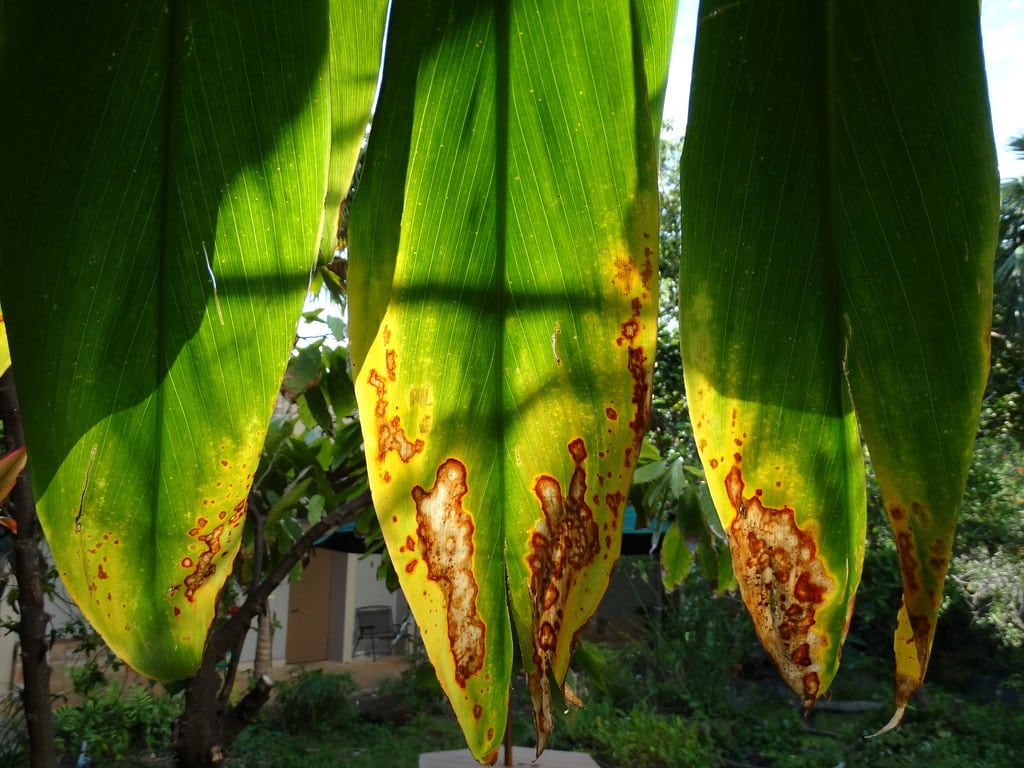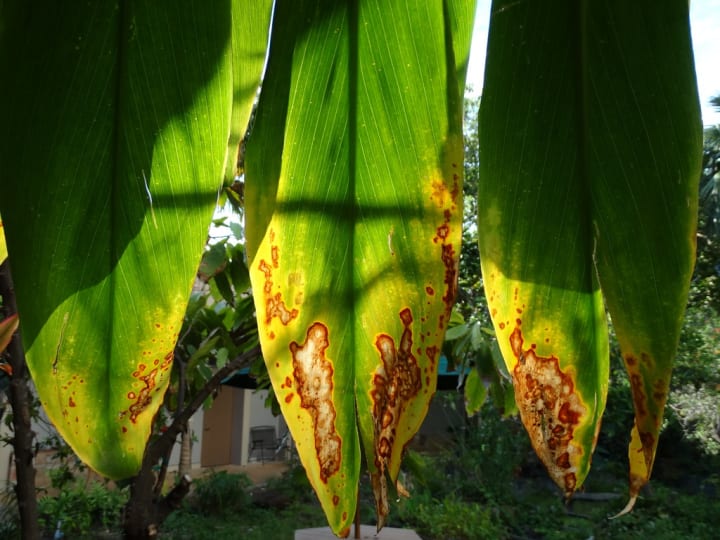Plant Problems
What are the problems we facing when growing plants

There are a variety of problems that can affect plants in a garden. Some common plant problems include:
1. Pests: Insects, mites, and other pests can damage plants by feeding on leaves, flowers, and stems. Some common garden pests include aphids, spider mites, whiteflies, and slugs.

Pests are organisms that can cause damage to plants. They can be insects, mites, nematodes, rodents, or even larger animals like deer. Pests can chew on leaves and stems, suck sap from plants, and transmit diseases. Some common garden pests include aphids, spider mites, whiteflies, snails, slugs, and caterpillars. To control pests, gardeners can use various methods like handpicking, insecticidal soaps, neem oil, or natural predators like ladybugs.
2. Diseases: Plants can be affected by various fungal, bacterial, and viral diseases that cause symptoms such as wilting, yellowing, and spotting of leaves. Examples of common plant diseases include powdery mildew, leaf spot, and blight.
Plant diseases are caused by various pathogens like fungi, bacteria, viruses, or nematodes. Symptoms of plant diseases can include leaf spots, wilting, yellowing, stunted growth, or even death of the plant. Common garden diseases include powdery mildew, downy mildew, blight, rust, and root rot. To prevent and control diseases, gardeners can practice good sanitation, use disease-resistant varieties, and avoid overcrowding plants.
3. Nutrient deficiencies: Plants require certain nutrients to grow and develop properly. When these nutrients are lacking in the soil, plants can develop nutrient deficiencies, which can cause stunted growth, yellowing leaves, and other symptoms.

Plants require various nutrients like nitrogen, phosphorus, potassium, calcium, and magnesium to grow and develop properly. When one or more of these nutrients are lacking in the soil, plants can develop deficiencies, which can cause stunted growth, yellowing leaves, or even death of the plant. Symptoms of nutrient deficiencies can vary depending on the nutrient and the plant species. To prevent nutrient deficiencies, gardeners can test their soil, use fertilizers, and amend the soil with organic matter.
4. Environmental stress: Plants can be affected by environmental factors such as extreme temperatures, drought, flooding, and exposure to pollutants.
Plants can be affected by various environmental factors like extreme temperatures, drought, flooding, high winds, or exposure to pollutants. These stresses can cause symptoms like wilting, yellowing, leaf drop, or even death of the plant. To prevent or minimize environmental stress, gardeners can choose plants that are adapted to their climate and soil type, provide proper irrigation and drainage, and avoid using chemicals and other pollutants.
5. Weeds: can compete with garden plants for water, nutrients, and sunlight, and can also serve as hosts for pests and diseases.

Weeds are unwanted plants that can compete with garden plants for water, nutrients, and sunlight. Weeds can also serve as hosts for pests and diseases. Common garden weeds include dandelions, chickweed, crabgrass, and clover. To control weeds, gardeners can use various methods like hand weeding, mulching, or using herbicides.
6. Improper care: Improper watering, fertilization, pruning, and other care practices can also lead to problems with garden plants.
Improper care practices like overwatering, underwatering, over-fertilizing, or pruning at the wrong time can also lead to problems with garden plants. For example, overwatering can cause root rot, while underwatering can cause wilting and yellowing leaves. Over-fertilizing can burn the plant roots, while under-fertilizing can cause nutrient deficiencies. Pruning at the wrong time can remove flower buds or damage the plant structure. To avoid these problems, gardeners can learn about the specific needs of their plants and follow proper care guidelines.
In conclusion, maintaining a healthy garden requires understanding and addressing various plant problems that can arise. Pests, diseases, nutrient deficiencies, environmental stress, weeds, and improper care practices can all impact the health and vitality of garden plants. Gardeners can take steps to prevent or control these problems by practicing good sanitation, choosing disease-resistant varieties, testing and amending the soil, providing proper irrigation and drainage, using natural predators or herbicides, and following proper care guidelines. With proper attention and care, gardeners can enjoy a thriving and beautiful garden.
About the Creator
Love The Green
Welcome to my page,I hope to share my experiences, insights, and knowledge with fellow nature enthusiasts.Together, we can celebrate the wonders of the natural world, and work to protect and preserve it for future generations to enjoy🌿🌲






Comments
There are no comments for this story
Be the first to respond and start the conversation.